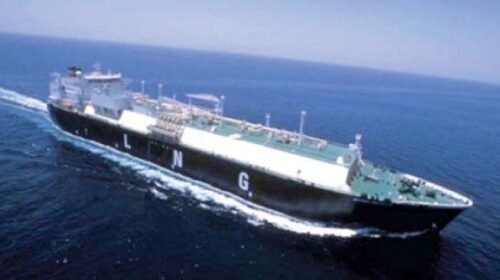Pakistan Gas Port Consortium Limited (PGPCL) on Tuesday issued a legal notice to Pakistan LNG Limited (PLL) for misconduct and default regarding third-party access agreement (TPPA) finalisation, causing hurdles in the private sector’s LNG imports.
PLL has been urged to resolve the matter of TPPA within 90 days. In case of failure, PGPCL would move to the London Court of International Arbitration (LCIA) for justice.
PGPCL, owner and operator of LNG terminal-2 on Tuesday issued the notice to the government-owned PLL by invoking dispute resolution under Clause 37 of the OSA (operation services agreement) regarding persistent failure to negotiate and finalise TPPA.
Addressing PLL’s managing director, the PGPCL official communication available with The News, said that repeated and deliberate failure to finalise the TPAA under Clause 9.4 of OSA, had constrained the company to issue this notice under Clause 37 of OSA. It nominated Justice Tariq Shamim (retd) as its authorised representative.
According to PGPC’s communication, interested buyers, who had approached PGPCL for availing its services, have had to scrap their arrangements. This has resulted in a loss of approximately $84,466,673 for PGPCL, while the company continues to incur $2,228,931/month because of the situation.
The communication said that third parties were interested in using the PGPCL terminal’s excess regasification and storage capacity not committed to the PLL. It said that PLL was made aware of this interest, and PLL has itself engaged in tri-partite discussions regarding the TPAA. However, PGPCL alleged that in order to maintain its monopoly over the terminal, PLL has persistently refused to finalise the TPAA.
According to the draft OSA of the PLL’s tender for the LNG terminal, it was note4d that the operator would be entitled to utilise excess terminal capacity to provide services to interested third parties. Relying on this representation, PGPCL’s sponsors submitted a bid of US cents 41.77 and chartered a brand-new floating storage regasification unit (FSRU) with excess regasification and storage capacity. It was specified in the tender documents too, so that PGPCL could utilise the available excess capacity at the terminal for providing LNG services to third parties to earn returns for its sponsors.
In view of this, PGPCL requested PLL to initiate TPAA negotiations back on March 29, 2017. The PLL had responded on April 20, 2017 to state that the matter be taken up after commissioning of the terminal. The terminal was successfully commissioned on January 4, 2018, and the excess capacity was demonstrated and certified at the time of the commissioning test. The excess capacity was reflected in the operations license, dated April 3, 2018 granted by the Oil and Gas Regulatory Authority (OGRA) to PGPCL.
The notice further said that since the commissioning of the terminal, PLL was repeatedly requested to negotiate and finalise the TPAA.
A without prejudice agreement (WPA) was also executed at PLL’s insistence stating that the TPAA’s negotiations would be without prejudice to either party’s rights in respect of the pending disputes before the LCIA and Islamabad High Court.
After delaying the matter without cause for a prolonged period, PLL finally countersigned and returned the WPA on August 3, 2022, with the assurance that it would finalise the TPAA with PGPC. On PLL also signed a clarification letter on August 3, 2022 in which the utilisation of excess capacity was clarified and agreed between the parties.
One of those conditions included PLL having unconditional access to peal delivery capacity of 650 MMSCFD for 300 days (to be increased to 350 days subject to OCT) and 690 MMSCFD for 45 days on operator’s reasonable endeavours basis. Another was PLL having berthing priority for its cargoes. PGPCL was also to bear demurrage loss suffered by PLL as a consequence of failure of the third party/operator. However, PLL again failed to allow PGPCL to proceed with the import of LNG by the private sector for sale to the







